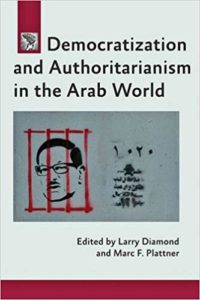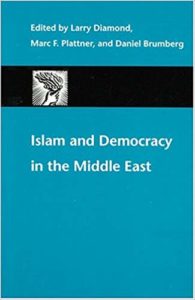April 2020, Volume 31, Issue 2
Tunisia’s Endless Transition?
A domestic pact may be needed to end a dictatorship, but what happens when that pact itself becomes one of the chief obstacles to deeper democratization?
April 2020, Volume 31, Issue 2
A domestic pact may be needed to end a dictatorship, but what happens when that pact itself becomes one of the chief obstacles to deeper democratization?

July 2013, Volume 24, Issue 3
The Arab world’s old autocracies survived by manipulating the sharp identity conflicts in their societies. The division and distrust that this style of rule generated is now making it especially difficult to carry out the kind of pact-making often crucial to successful democratic transitions.

October 2002, Volume 13, Issue 4
Politics in the Arab Middle East is often a matter of powerholders first liberalizing — and then "deliberalizing" — public life in order to first maintain their rule. But this "survival strategy" is a dead end.
July 2002, Volume 13, Issue 3
Middle Eastern autocracies rely ever more on repression of both their Islamist and secular critics, and therefore increasingly fear that any opening will be uncontrollable. Is there a way out?
October 2000, Volume 11, Issue 4
The uneasy accommodation of competing visions of authority that has characterized Iran’s political system since 1979 is a familiar phenomenon in the Middle East and elsewhere.
Fall 1990, Volume 1, Issue 4
A review of Unruly Corporatism: The Associational Life in Twentieth-Century Egypt, by Robert Bianchi.

The uprisings that swept the Arab world beginning in 2010 toppled four entrenched rulers and seemed to create a political opening in a region long impervious to democratization.

